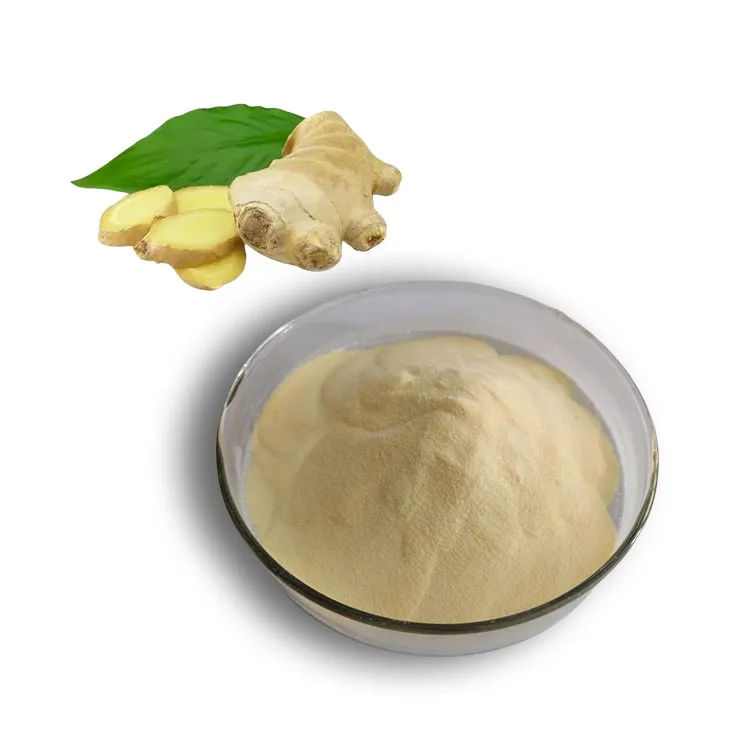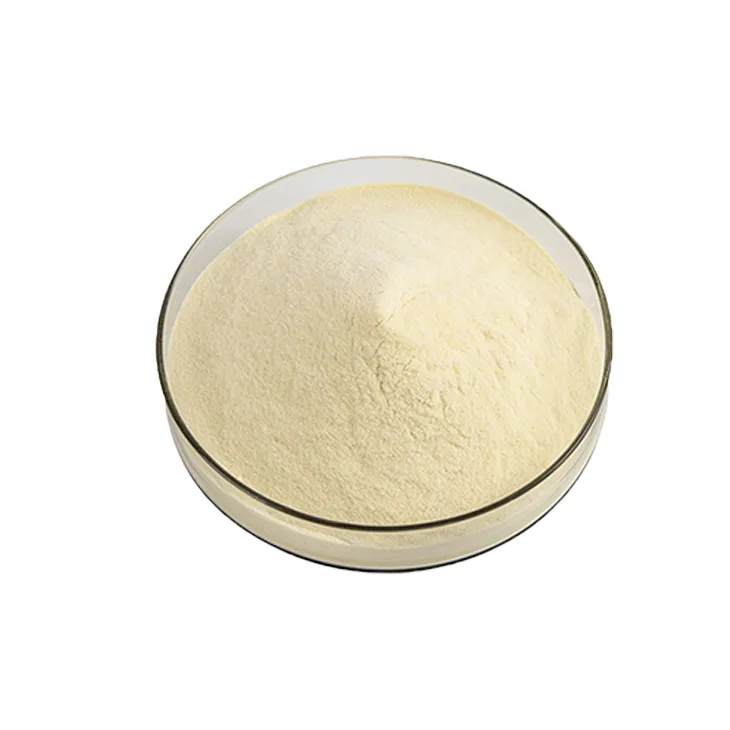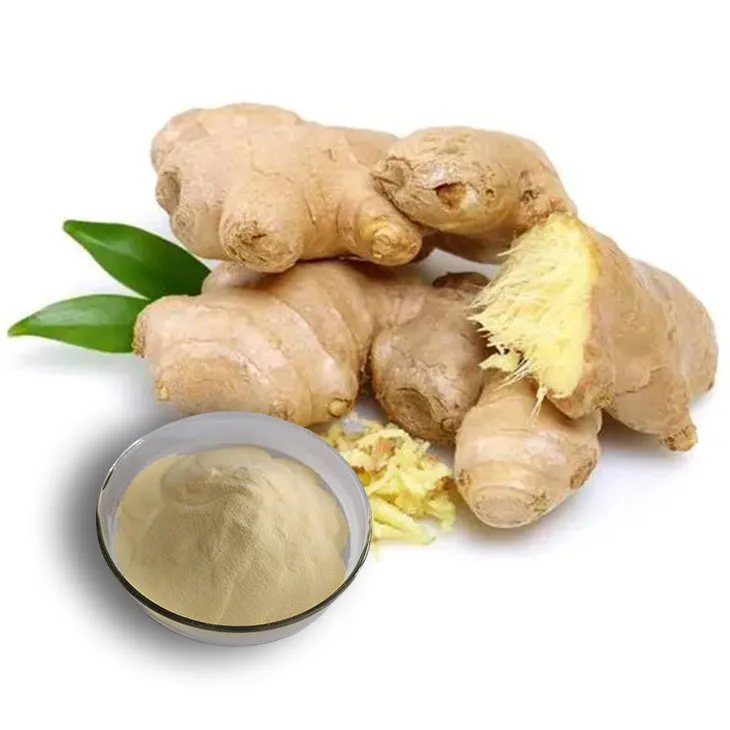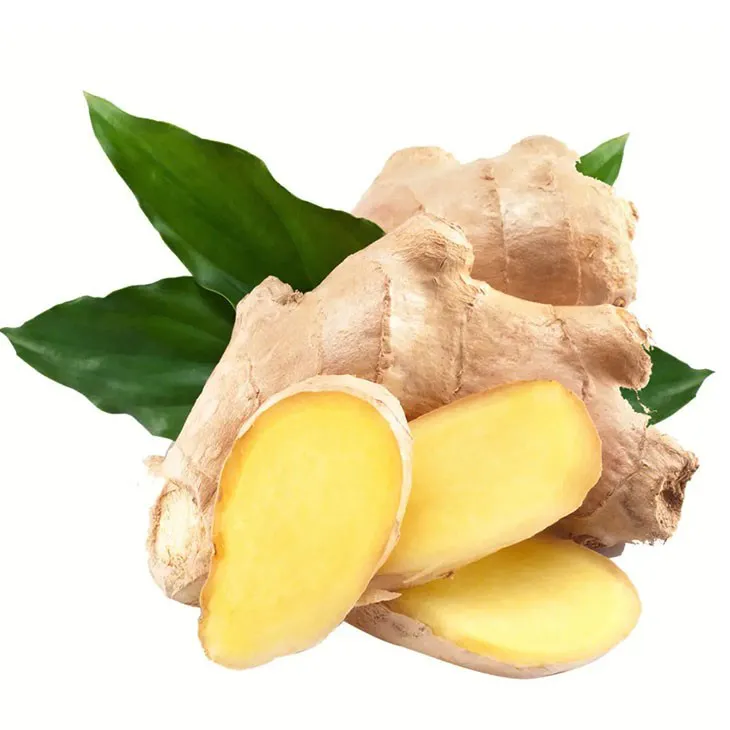- 0086-571-85302990
- sales@greenskybio.com
Which ginger extract should you use?
2024-12-11

Introduction
Ginger has been a staple in various cultures for centuries, known for its distinct flavor and numerous health benefits. In modern times, Ginger Extracts have become increasingly popular as a convenient way to incorporate ginger's goodness into our lives. However, with different forms of Ginger Extracts available in the market, such as powder, oil, and tinctures, it can be quite confusing to decide which one to use. This article aims to provide a comprehensive guide to help you make an informed choice.

Forms of Ginger Extracts
Ginger Powder
Ginger powder is perhaps the most common form of ginger extract. It is made by drying ginger root and then grinding it into a fine powder. One of the main advantages of ginger powder is its versatility. It can be easily added to a variety of recipes, both sweet and savory.
- In cooking, ginger powder can be used in baking, such as in gingerbread or spiced cookies. It adds a warm, spicy flavor.
- For savory dishes, it can be used in marinades for meats, added to stir - fries, or used in the preparation of curries. The powder blends well with other spices and seasonings.
- From a health perspective, ginger powder contains certain bioactive compounds. While it may not be as concentrated as some other forms in terms of specific components, it still offers some health perks. For example, it may aid in digestion. When consumed, it can help stimulate the production of digestive enzymes, which can assist in breaking down food more efficiently.
Ginger Oil
Ginger oil is a more concentrated form of ginger extract. It is typically obtained through steam distillation of ginger root. This form is rich in gingerols, which are the main bioactive compounds responsible for many of ginger's health - promoting properties.
- When it comes to health - related uses, ginger oil is often sought after for its anti - inflammatory benefits. Inflammation is at the root of many chronic diseases, and gingerols in the oil have been shown to have anti - inflammatory effects. For example, it may help reduce joint pain in conditions like arthritis. Some people use ginger oil topically, diluted in a carrier oil such as coconut oil, and massage it onto the affected joints.
- In aromatherapy, ginger oil can also be used. The invigorating scent of ginger oil can have a stimulating effect on the mind and body. It can be diffused in a room to create an energizing atmosphere or used during a massage for a relaxing yet revitalizing experience.
Ginger Tinctures
Ginger tinctures are made by soaking ginger root in alcohol or a glycerin solution for a period of time. This process extracts the active compounds from the ginger into the liquid.
- Ginger tinctures are convenient for those who prefer a liquid form of supplementation. They can be easily added to a small amount of water or juice and consumed. Some people find tinctures to be more easily absorbed by the body compared to powder forms.
- Like other forms of ginger extracts, ginger tinctures also possess health - promoting properties. They may be used to support digestion, as ginger has a long - standing reputation for relieving digestive discomfort such as nausea, whether it is due to motion sickness, pregnancy, or other causes.

Health - Related Considerations
Anti - Inflammatory Properties
As mentioned earlier, ginger oil is a great choice for those specifically seeking anti - inflammatory benefits. The high concentration of gingerols in ginger oil gives it a potent anti - inflammatory effect. However, ginger powder and tinctures also contain anti - inflammatory compounds, albeit in lower concentrations.
Studies have shown that regular consumption of ginger - based products can help reduce markers of inflammation in the body. This can be beneficial for individuals with inflammatory conditions such as autoimmune diseases or those at risk of developing chronic inflammatory - related health issues.
Digestive Health
All forms of ginger extracts can play a role in promoting digestive health. Ginger powder, when added to food, can help improve digestion during the meal. Ginger tinctures can be taken before or after a meal to soothe the digestive system, especially if there is a feeling of nausea or indigestion.
Ginger stimulates the production of saliva, which contains enzymes that start the digestive process in the mouth. In the stomach, it can help increase the motility of the digestive tract, ensuring that food moves through the system more smoothly. This can prevent issues such as constipation and bloating.
Immune - Boosting
Ginger has been associated with immune - boosting properties. The bioactive compounds in ginger extracts, regardless of the form, can help support the immune system. Ginger contains antioxidants that can help protect the body's cells from damage caused by free radicals. Free radicals are unstable molecules that can damage cells and contribute to the development of diseases.
By consuming ginger extracts, whether it is in the form of powder in your daily tea, ginger oil in an aromatherapy session, or a ginger tincture as a supplement, you may be giving your immune system a natural boost.

Skincare Applications
Antioxidant - Rich Ginger Extracts
In skincare, certain ginger extracts are highly valued for their antioxidant content. Ginger contains compounds like gingerols and shogaols, which are antioxidants. These antioxidants can help protect the skin from environmental damage, such as damage from UV rays, pollution, and other external factors.
When used in skincare products, ginger extracts can help reduce the signs of aging. They can help prevent the formation of wrinkles by protecting the skin's collagen and elastin fibers. Collagen and elastin are proteins that give the skin its firmness and elasticity, and as we age, their production decreases. Ginger extracts can also help improve the skin's overall complexion by reducing inflammation and redness.
Topical Use of Ginger Extracts
Ginger oil can be used topically in skincare, but it must be diluted properly. Undiluted ginger oil can be too strong and may cause skin irritation. When diluted, it can be added to creams or lotions for its antioxidant and anti - inflammatory benefits.
Ginger powder can also be used in homemade face masks. For example, a simple face mask can be made by mixing ginger powder with honey and yogurt. The honey has moisturizing properties, the yogurt contains lactic acid which can exfoliate the skin gently, and the ginger powder adds its antioxidant and anti - inflammatory benefits.

How to Choose the Right Ginger Extract
When deciding which ginger extract to use, there are several factors to consider:
Intended Use
If you are mainly interested in adding ginger flavor to your cooking, ginger powder is a great choice. It is easy to use and readily available. For those seeking anti - inflammatory benefits for health issues like joint pain, ginger oil may be more suitable, especially if you are open to using it topically or in aromatherapy. If you prefer a liquid form for general health supplementation or for digestive support, ginger tinctures could be the way to go.
Convenience
Ginger powder is convenient for cooking and can be stored easily in a pantry. Ginger oil requires proper storage in a cool, dark place to preserve its properties. Ginger tinctures are also easy to store and can be carried around, making them convenient for on - the - go use if you need to take ginger for digestive issues while traveling, for example.
Personal Sensitivities
Some people may be sensitive to ginger, especially when using it in concentrated forms like ginger oil. It is important to do a patch test before using ginger oil topically. If you have a history of allergies or sensitivities to plants in the Zingiberaceae family (to which ginger belongs), you should be cautious when using any form of ginger extract.
Conclusion
In conclusion, the choice of which ginger extract to use depends on various factors, including your intended use, convenience, and personal sensitivities. Each form of ginger extract - powder, oil, and tincture - has its own unique properties and benefits. Whether you are looking to enhance your health, add flavor to your cooking, or improve your skincare routine, ginger extracts can be a valuable addition. By understanding the differences between these forms, you can make a more informed decision and fully enjoy the many benefits that ginger has to offer.
FAQ:
What are the different forms of ginger extract?
There are mainly three different forms of ginger extract. One is powder form, which is convenient to use in cooking. Another is ginger oil, and the last one is tinctures. Each form has its own unique characteristics and uses.
Why is ginger oil considered for anti - inflammatory benefits?
Ginger oil is rich in gingerols. These gingerols are the key components that give ginger its anti - inflammatory properties. So for those who are looking for anti - inflammatory benefits, ginger oil can be a good choice.
How can ginger powder extract be used in cooking?
Ginger powder extract can be added to various dishes during the cooking process. It can be used in baking, such as adding it to gingerbread recipes. Also, it can be sprinkled on top of cooked vegetables or mixed into meat marinades to add a unique flavor as well as some health benefits.
What makes certain ginger extracts good for skincare?
Some ginger extracts are rich in antioxidants. Antioxidants in ginger extracts can help fight against free radicals in the skin, which are associated with skin aging and damage. So these ginger extracts are prized for skincare.
How do I choose the right ginger extract for my specific needs?
If you are more focused on anti - inflammatory benefits, ginger oil might be suitable. For cooking purposes, ginger powder extract is a convenient option. And if you are interested in skincare, look for ginger extracts with high antioxidant content. Consider your specific requirements such as health benefits, usage scenarios (like cooking or skincare), and personal preferences when making a choice.
Related literature
- The Bioactive Compounds of Ginger and Their Potential Health Benefits"
- "Ginger Extracts in Modern Medicine and Skincare"
- "A Comprehensive Review on the Forms and Functions of Ginger Extract"
- ▶ Hesperidin
- ▶ citrus bioflavonoids
- ▶ plant extract
- ▶ lycopene
- ▶ Diosmin
- ▶ Grape seed extract
- ▶ Sea buckthorn Juice Powder
- ▶ Beetroot powder
- ▶ Hops Extract
- ▶ Artichoke Extract
- ▶ Reishi mushroom extract
- ▶ Astaxanthin
- ▶ Green Tea Extract
- ▶ Curcumin Extract
- ▶ Horse Chestnut Extract
- ▶ Other Problems
- ▶ Boswellia Serrata Extract
- ▶ Resveratrol Extract
- ▶ Marigold Extract
- ▶ Grape Leaf Extract
- ▶ blog3
- ▶ blog4
- ▶ blog5
-
Certified Organic Almond Extract Powder Set.
2024-12-11
-
Berberis aristata Extract
2024-12-11
-
Lemon Juice Powder
2024-12-11
-
Nettle Root Extract
2024-12-11
-
Alfalfa Meal
2024-12-11
-
Oat Straw Extract Powder
2024-12-11
-
Europen Bilberry Extract
2024-12-11
-
Grapefruit Seed Extract Powder
2024-12-11
-
Feverfew Extract
2024-12-11
-
Beta Carotene
2024-12-11
-
Yam Extract
2024-12-11





















